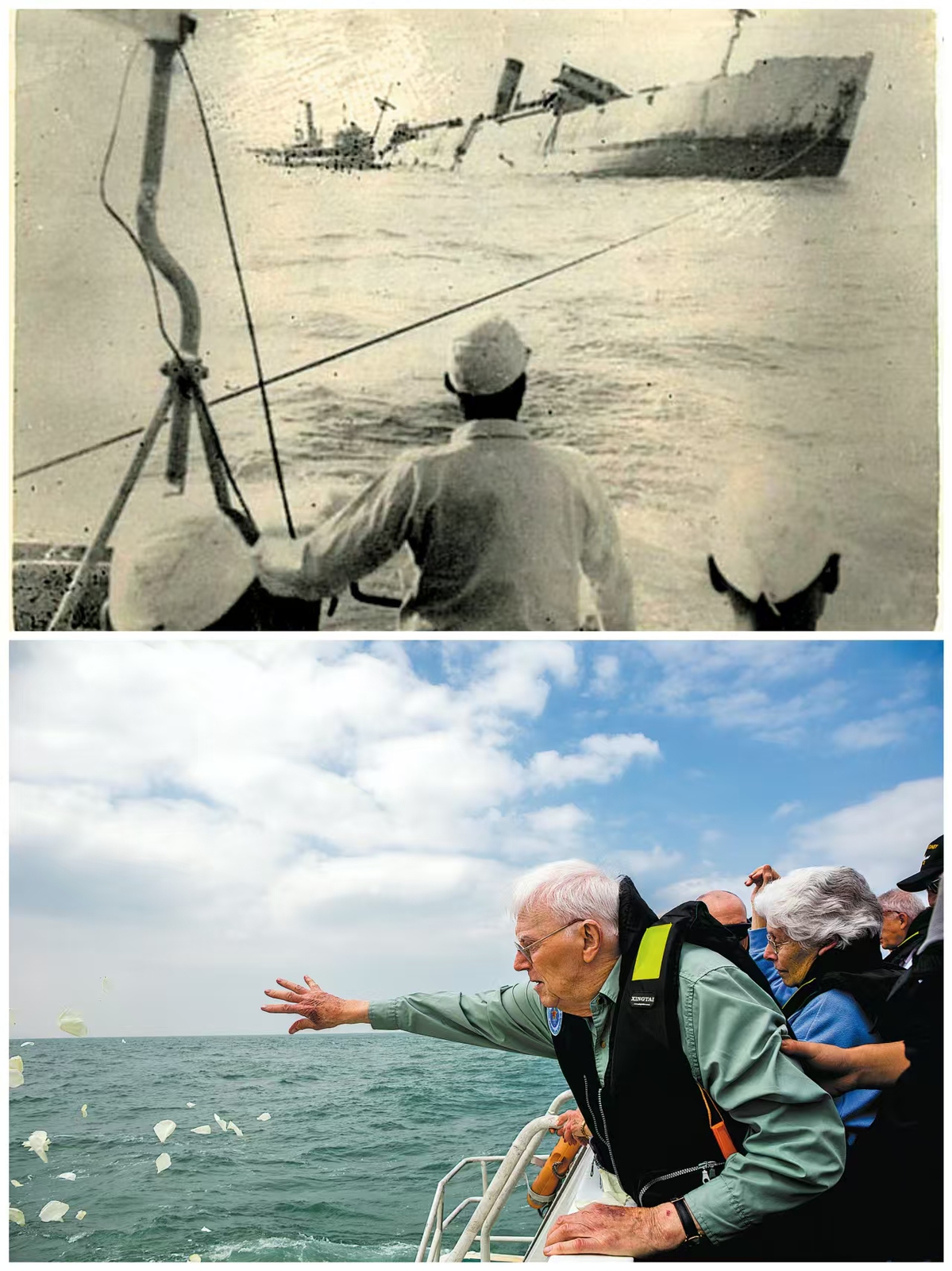

Last survivors
In April 2018, the documentary team embarked on its first trip to the UK, visiting 20 cities, and various museums and archives. They also interviewed the last survivor in the UK, Dennis Morley, who died in 2021 at the age of 101.
Morley was a 22-year-old in the Royal Scots regiment when he was put on the Lisbon Maru. After the war, he settled in Gloucestershire, England, and kept the horrific wartime story to himself.
But when he faced Fang's camera, he recounted the horror that unfolded after the ship was torpedoed. The Japanese soldiers battened down the three holds the POWs were in, he confirmed.
"We were sealed in, we couldn't get out anyway," said Morley. "The water is pouring in. The bastards are going to drown us."
In one hold, the ladder broke, trapping many of the Royal Artillery members. As the ship sank, survivors said they heard It's a Long Way to Tipperary, an uplifting British marching song, being sung.
Some of the prisoners managed to escape and jumped into the water only to face a hail of machine-gun fire from other Japanese ships that had come to rescue their compatriots.
"The Japanese were shooting at them, and you swam among dead bodies," said Morley. "Eventually, the Chinese fishermen came out and started picking up people, and then the Japs stopped shooting."
Morley was picked up by one of the Japanese ships, but was grateful to the fishermen whose heroic actions prevented a complete massacre. "Those Chinese fishermen didn't know that they saved a lot more people than they thought they saved," he said.
Fang's team also interviewed Lin A'gen, the last surviving fisherman, at the age of 95, on Dongji Island.
"Four men on a boat, (and) altogether some 20 to 30 boats went out," said Lin, who has since passed away. "When people get in trouble at sea, we always go to help them, that's very natural for us."
The story of the Lisbon Maru has also been preserved by the local museum and studied by Chinese scholars. A document from the Zhejiang Provincial Archive declassified in 2005 detailed the rescue efforts.
After the fishermen saved 300 POWs, Japanese soldiers went to the village the next day and recaptured all but three who were hidden by the villagers in a cave.
Three Britons — J. C. Fallace, W. C.Johnstone, and A. J. W. Evans — escaped to Chongqing, China's wartime capital. Through broadcasts, they disclosed the Lisbon Maru incident as well as the Japanese mistreatment of POWs, the first time this information was made public.
A record of that great rescue is kept in an exhibition hall in the Dongji History and Culture Museum. More than 400,000 visitors have visited the museum since it opened in 2009.